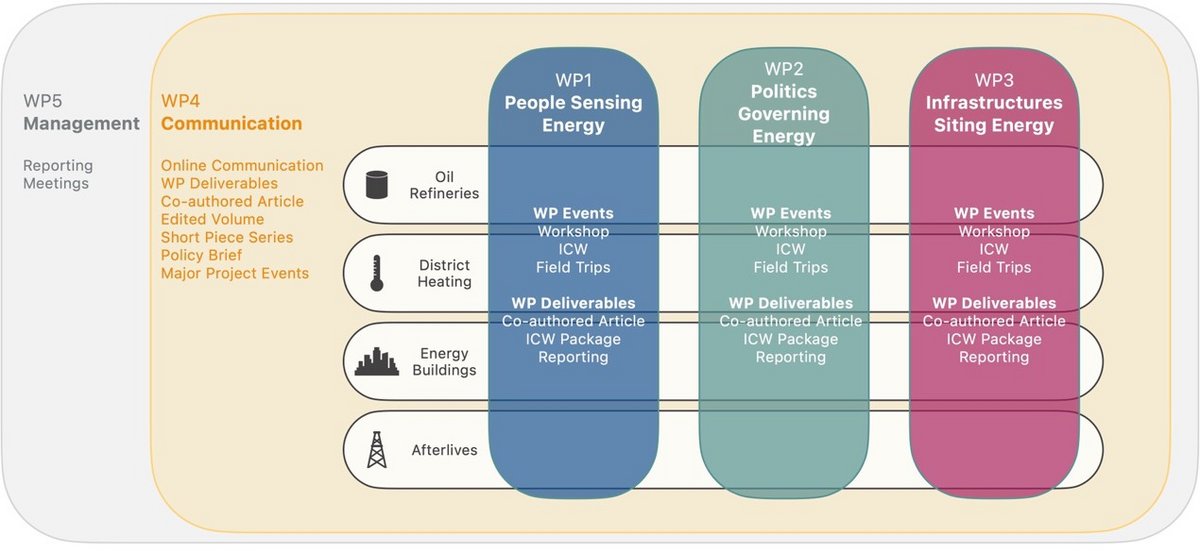Through four case clusters (Oil Refineries, District Heating, Energy Buildings, and Afterlives) representative for the developments in all Nordic countries, Energy Lives! is designed to capture the complexity of infrastructural citizenship in energy transitions, as illustrated in the figure below. Providing the empirical material on energy transition processes while capturing the lifespan of energy transitions from production, distribution, use, and disposal of energy sources and technologies, the four cases reflect on the lives of energies and on the living with energy in different ways. Covering about 150 years as well as all five Nordic countries, the empirical cases allow us to challenge the idea of energy transitions as progress or modernization, to highlight the interconnectedness between different energy systems and processes, to compare across time and space, and to challenge the notion of passive citizens in the history of energy and infrastructure transitions. All case clusters will contribute to the work packages People Sensing Energy, Politics Governing Energy and Infrastructures Siting Energy.

This case study will set a comparative exploration on central infrastructure of the oil society: refineries. Refineries always had a major local impact, profoundly changing the local industries, populations, housing, work organization, politics, and nature. Using a micro-historical approach to transformations brought to local communities by oil refineries, this case creates a finer grained understanding of the local impact of energy transformation usually overshadowed by the national and global level narratives.
During the 20th century, most Nordic citizens shifted from heating their homes with fuels to district heating (DH) with over half of Swedish, Finnish, Danish, nearly all Icelandic, and a growing number of Norwegian households connected to DH utilities. The shift to DH was not only a technological but also a social and cultural shift. This case study will explore the role of citizens and local initiatives in the transformation to DH and the shift from controlling their own heating system to entrusting a centralized infrastructure for heat distribution.
Historically, buildings have gone from being energy consumers to being passive buildings to beginning to produce a surplus of energy through the implementation of technologies like solar panels and cooling tubes. This case explores how buildings function as sites of participation in energy infrastructures and how visions of system change are negotiated and implemented through buildings. It will track discourses on and biographies of specific energy buildings in Norway and Denmark through studying how energy use and production has been made visible and comprehensible in the home.
The decommissioning of nuclear plants, oil rigs, refineries have posed challenges for past, contemporary and future generations as does the management of coal mines, toxic and nuclear waste, and other material and environmental afterlives. This case explores how the practices of abandoning, restoring, and decommissioning create new places of energy transitions in Sweden and Norway, one country with nuclear power, the other only with nuclear research facilities, by focusing on the front-matter and back-end of the nuclear fuel chain.